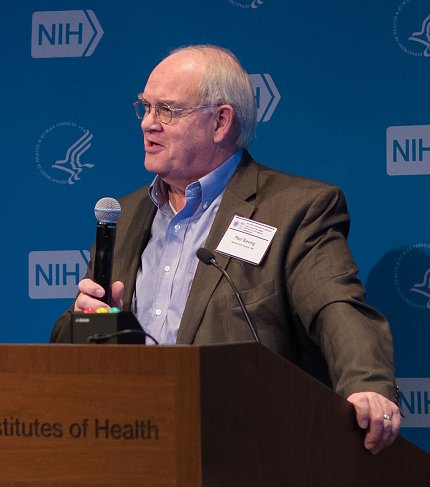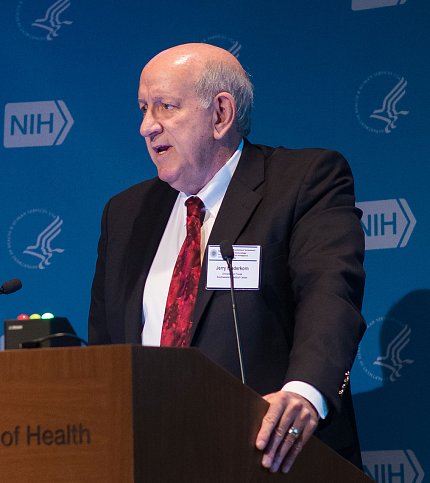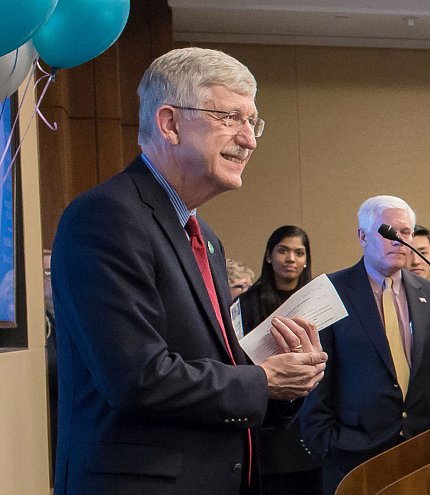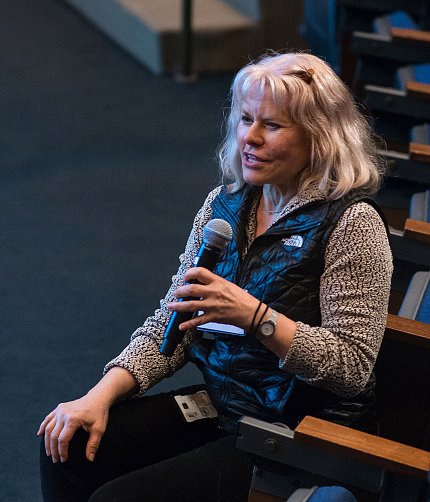More to Come
NEI 50th Anniversary Events

NEI recently hosted “Vision and Immunology: Partners in an Ambiguous Relationship,” the second in a series of day-long symposia honoring the institute’s 50th anniversary.
“The immune system is pretty remarkable. It keeps us going every day despite all the environmental threats, etc., that we face,” said NEI director Dr. Paul Sieving. But in the eye, where the immune system can easily wreak havoc on vision, a tightly balanced control of immune cells makes for a dance between factors that protect against pathogens and factors that protect against inflammation.

“Immune privilege—there are two sides to that sword,” said Dr. Jerry Niederkorn of the University of Texas Southwestern Medical Center. Ordinarily, the eye keeps a tight lid on the immune system, dampening the activity of immune cells that enter it. This makes the eye, like the brain, an immune-privileged site, which is crucial because inflammation in the eye (uveitis) can damage the eye’s light-sensitive retina and affect vision. Immune privilege also enables transplantation of tissues like the cornea with low risk of immune rejection.
But immune function, the sword’s other edge, is still needed to fight off viral and bacterial infections. Several speakers discussed potential ways to help clear infections while preventing damage to the eye. Others addressed transplantation, autoimmunity, age-related macular degeneration and genetic disorders that affect the eye.
Upcoming NEI 50th anniversary symposia on campus include Low Vision and Vision Rehabilitation, June 29 and Future of Vision Research, Oct 18.
NEI on Capitol Hill

NIH staff joined members of Congress and research leaders at another recent event on Capitol Hill recognizing NEI’s progress over the past 50 years in understanding vision and preventing and treating eye disease. The Alliance for Eye and Vision Research hosted the event.
Due in large part to clinical trials funded by NEI, the incidence of severe vision loss from diabetic retinopathy has decreased by 90 percent, said Sieving. Today, NEI is at the forefront of regenerative medicine, he said, citing the NEI Audacious Goals Initiative, which supports research to image the visual system and identify biological factors that allow retinal neurons to regenerate.

NIH director Dr. Francis Collins reflected on the contributions vision research has made to the rest of medicine: “NEI-supported researchers have led the way in advancing common disease genetics and gene and stem cell therapies.” And this year, an NEI team is poised to launch the first U.S. clinical trial of tissues derived from induced pluripotent stem cells, he noted. The stem cell therapy aims to replace diseased cells of the retina to treat age-related macular degeneration.
Rep. Pete Sessions (R-TX), a steadfast advocate for publicly funded vision research, noted that cutting-edge research funded by NEI helped lead to the first FDA-approved gene therapy for an eye disease. Visit the NEI web site for more information about 50th anniversary events and activities at https://nei.nih.gov/neiat50.
